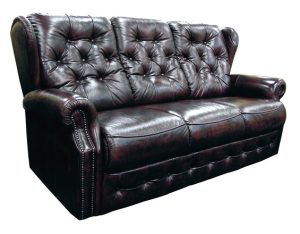In Mordhorst v. Dakota Truck Underwriters, a 22-year-old claimant was working for a furniture company doing deliveries. One day while on the job, he was delivering a sofa that weighed nearly 300 pounds. While delivering this couch, it fell off the back of the delivery truck and landed on claimant’s head and shoulders. He was knocked to the ground and was rendered unconscious for a short period of time.
 The day after this workplace accident, claimant went to get medical treatment for his injuries. He was eventually seen by two physicians and treated by a number of physical therapists. He claimed an injured back and neck. He was given an MRI, and that test showed he had a herniated disc in his spine. His doctors also observed that his posture was forward in such a way as to indicate he was trying to compensate the pain in his neck and back. This type of compensation will often result in additional damage to the patient because he is constantly carrying himself in an unnatural manner.The following year, employer’s workers’ compensation insurance company requested that claimant meet with an independent medical examiner selected by the insurance company. However, as our Boston workers’ compensation lawyers have seen in far too many cases, when an insurance company selects the independent medical examiner, he or she may not be so independent after all. The reason for this is because getting put on the list of doctors the insurance company will use can be very lucrative for the doctor, since they are getting paid for each examination they are conducting. If they are constantly making findings that support a disability claimant’s request for workers’ compensation benefits, it is not hard to see how this might upset the insurance company, and this would possibly lead to the insurance company taking the doctor off the list of go-to independent medical examiners.
The day after this workplace accident, claimant went to get medical treatment for his injuries. He was eventually seen by two physicians and treated by a number of physical therapists. He claimed an injured back and neck. He was given an MRI, and that test showed he had a herniated disc in his spine. His doctors also observed that his posture was forward in such a way as to indicate he was trying to compensate the pain in his neck and back. This type of compensation will often result in additional damage to the patient because he is constantly carrying himself in an unnatural manner.The following year, employer’s workers’ compensation insurance company requested that claimant meet with an independent medical examiner selected by the insurance company. However, as our Boston workers’ compensation lawyers have seen in far too many cases, when an insurance company selects the independent medical examiner, he or she may not be so independent after all. The reason for this is because getting put on the list of doctors the insurance company will use can be very lucrative for the doctor, since they are getting paid for each examination they are conducting. If they are constantly making findings that support a disability claimant’s request for workers’ compensation benefits, it is not hard to see how this might upset the insurance company, and this would possibly lead to the insurance company taking the doctor off the list of go-to independent medical examiners.
This doctor who reviewed claimant’s medical records and examined claimant opined that the only injury claimant actually suffered in the sofa accident was a strain. He also opined that the strain was healed completely less than three weeks after the accident and that all of claimant’s injuries he was claiming were not supported by medical evidence. In other words, they were arguing that he was malingering or exaggerating his symptoms to collect workers’ compensation benefits.
As this point, claimant requested a hearing before the workers’ compensation commission to challenge the termination of benefits. The commission did not agree with the insurance company, and they were ordered to pay all past due medical expenses and also to pay for all future medical expenses as part of their workers’ compensation obligation. They did not appeal, but claimant filed a lawsuit against insurance company alleging bad faith dealing in denying benefits. The trial court granted defendant’s motion to dismiss this case, and plaintiff appealed that dismissal.
The appellate court reversed trial court’s dismissal of the case. They held that it was automatically reasonable to deny benefits based upon this independent medical examiner report. This means that there was evidence presented for a trier of fact such as a jury to make such a determination.
If you or someone you love has been injured a Boston work accident, call for a free and confidential appointment at (617) 777-7777.
Additional Resources:
Mordhorst v. Dakota Truck Underwriters, September 28, 2016, Supreme Court of South Dakota
More Blog Entries:
Parr v. Breeden – Supervisor Co-Workers Not Liable Under Workers’ Comp Exclusive Remedy, July 3, 2016, Boston Work Accident Lawyer Blog
 Massachusetts Workers Compensation Lawyers Blog
Massachusetts Workers Compensation Lawyers Blog

